Insurance, in its simplest terms, is the transfer of risk from a policyholder, or insured, to an insurance company, or insurer. Insurance risk is defined as the possibility of loss. Loss, in this case, can be defined as an undesirable financial outcome. While there are other types of risk and other types of loss in life that are not strictly financial, in the insurance business, it all revolves around money. It revolves around money and the risk of losing it through an unexpected event such as a house fire, an automobile accident or a sudden death. Money is pledged by the insurer in response to a covered loss and money is pledged by the insured, in the form of premium, as payment to the insurer for its willingness to accept this transfer of risk.
While risk is insurable, not all risk can be insured. An insurance risk must represent an economic or financial loss that can be compensated to the insured through the payment of money. Insurable risk must be capable of being measured, calculated and predictable. If the possibility of loss doesn’t exist, then there is no risk. On the other hand, if a loss is certain, there also is no risk. There must be at least some possibility of loss for insurance risk to exist and the amount of insurance premiums are determined by the measured expectation of those losses.
Risky People
Sometimes the word “risk” is assigned to a person rather than to an event potentially caused by this person. A heavy drinker, for example, would represent a risk to an automobile insurance underwriter and be referred to as a risk or even a high risk. A heavy smoker is a risk when looked at for a health insurance policy.
While doing a residential property inspection, an inspector may notice that the homeowner has allowed his property to fall into a state of disrepair and doesn’t exhibit what’s termed as “pride of ownership.” The inspector may make note that this person represents a certain risk to a potential insurer. It may not be the person, per se, that is considered a risk by the insurer, but if old newspapers and magazines are stacked up in the home or a large crack in the front walk has gone unrepaired due to negligence, these are definite potential liabilities that will require being addressed. They represent insurable risk.
Insurer Profitability
In order for an insurance company to remain profitable it must be able to accurately predict potential losses. This requires the accurate understanding of the risks involved with any policy. Two things are needed for an insurer to remain profitable:
Risky People
Sometimes the word “risk” is assigned to a person rather than to an event potentially caused by this person. A heavy drinker, for example, would represent a risk to an automobile insurance underwriter and be referred to as a risk or even a high risk. A heavy smoker is a risk when looked at for a health insurance policy.
While doing a residential property inspection, an inspector may notice that the homeowner has allowed his property to fall into a state of disrepair and doesn’t exhibit what’s termed as “pride of ownership.” The inspector may make note that this person represents a certain risk to a potential insurer. It may not be the person, per se, that is considered a risk by the insurer, but if old newspapers and magazines are stacked up in the home or a large crack in the front walk has gone unrepaired due to negligence, these are definite potential liabilities that will require being addressed. They represent insurable risk.
Insurer Profitability
In order for an insurance company to remain profitable it must be able to accurately predict potential losses. This requires the accurate understanding of the risks involved with any policy. Two things are needed for an insurer to remain profitable:
- Risks it chooses to cover must have a predictable claims payout
- Premiums charged must be affordable, otherwise few people would purchase the coverage
The amount of money taken in through policyholder premiums minus the amount paid out in policyholder claims, added to the amount earned through the investment of premium dollars, must be sufficient to pay company operating costs and still produce a reasonable profit for an insurer to remain viable.
Know the Risks
Insurance Risk Services has been helping our clients uncover and accurately calculate insurance risk for more than 35 years with our quality residential and commercial property inspections and other field underwriting support services. We understand the importance of knowing the effects of risk on a proper underwriting process. Let us help you, too. Contact us for more information about what we can do for you.


